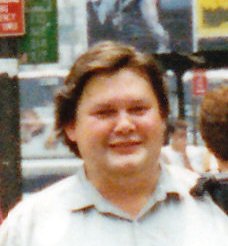Roman Juszkiewicz facts for kids
Quick facts for kids
Roman Juszkiewicz
|
|
|---|---|
 |
|
| Born | 9 August 1952 |
| Died | 28 January 2012 (aged 59) |
| Citizenship | Poland |
| Alma mater | Moscow State University, University of Warsaw |
| Known for | evolution of cosmological adiabatic perturbations in the weakly non-linear regime |
| Scientific career | |
| Fields | Cosmology |
| Institutions | N. Copernicus Astronomical Center, Polish Academy of Sciences |
| Doctoral advisor | Marek Demiański |
| Other academic advisors | Yakov Borisovich Zel'dovich |
Roman Juszkiewicz (born 9 August 1952 – died 28 January 2012) was a Polish astrophysicist. He studied big questions about the Universe, especially how it began and how it grew. This field of study is called cosmology.
Contents
Who Was Roman Juszkiewicz?
Roman Juszkiewicz was born in Warsaw, the capital city of Poland. He was a very smart student who loved learning about space. He went to Moscow State University and finished his studies there in 1976.
One of his important teachers was Yakov Borisovich Zel'dovich, a famous scientist. Later, Roman Juszkiewicz earned his PhD degree from the University of Warsaw in 1981.
His Journey Around the World
After his studies in Poland, Roman Juszkiewicz traveled to many famous universities. He visited Cambridge and Sussex in the United Kingdom. He also spent time at Berkeley and Princeton in the United States.
From 1989, he was part of the Institute for Advanced Study at Princeton. This is a special place where top scientists do research. He also worked at the Institut d'astrophysique de Paris in France and the University of Geneva in Switzerland.
Working in Poland
Roman Juszkiewicz also held important jobs back in Poland. He was a professor at the N. Copernicus Astronomical Center. This center is part of the Polish Academy of Sciences. He also taught at the University of Zielona Góra.
What Did He Study?
Roman Juszkiewicz was very interested in how the Universe formed and changed. He wrote almost 100 research papers about his ideas and discoveries. Most of his work was about cosmology.
How Galaxies Formed
One of his main interests was the "large-scale structure" of the Universe. This means how galaxies and groups of galaxies are spread out. He studied how gravity made these huge structures form over billions of years. This is called the theory of gravitational instability.
Clues from the Big Bang
He also studied the cosmic microwave background radiation. This is like an echo or leftover heat from the Big Bang, which is how scientists believe the Universe started. By studying this radiation, scientists can learn about the early Universe.
Another topic he explored was Big Bang nucleosynthesis. This is about how the very first light elements, like hydrogen and helium, were made right after the Big Bang.
Discovering Dark Matter
In 2000, Roman Juszkiewicz and his team made an important discovery about dark matter. Dark matter is a mysterious substance that scientists believe makes up a big part of the Universe, but we can't see it directly.
His team studied how pairs of galaxies moved. From these movements, they calculated how much dark matter might be in the Universe. Later, data from a detector called ACBAR in the South Pole confirmed his calculations. This showed how important his work was in understanding the Universe.
 | Claudette Colvin |
 | Myrlie Evers-Williams |
 | Alberta Odell Jones |

